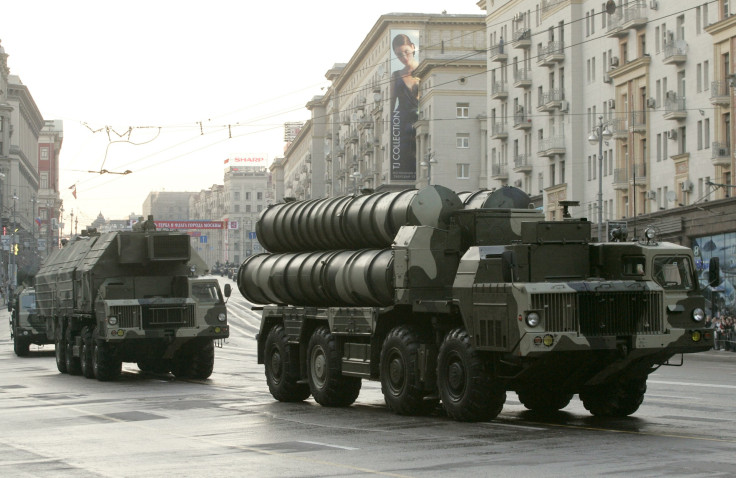Russia-Iran Missile Deal: Putin And Netanyahu Disagree Over Lift Of S-300 Ban

Russian President Vladimir Putin called Israeli Prime Minister Benjamin Netanyahu on Tuesday to assure him that Russia’s decision to lift a ban to supply Iran with sophisticated missile defense systems does not “pose any threat to the security of Israel,” but was met with strong disagreement from the Israeli leader. Supplying S-300 missile systems to Iran would “only increase Iran’s aggression in the region and will destabilize security in the Middle East, Netanyahu told Putin over the phone.
Netanyahu is a strong critic of Iran and a vocal opponent of the framework deal signed between the P5+1 and Iran on April 2 to reduce sanctions in return for guarantees of the peaceful nature of Iran’s nuclear program. He said Russia’s potential sale of S-300 systems to Iran was proof the nuclear deal was weak.
“This sale of advanced weaponry to Iran is the direct result of the dangerous deal on the table between Iran and the P5+1,” said Netanyahu, according to a statement on his website. “Can anyone still seriously claim that the deal with Iran will enhance security in the Middle East?”
Netanyahu wants the P5+1 to demand more stringent terms with Tehran to ensure it cannot develop nuclear warheads in the final deal, for which negotiators have set a June 30 deadline. Watch the S-300 system in action:
The S-300 system would greatly boost Iran’s surface-to-air defense capabilities. The typically truck-loaded system can target aircraft flying up to 16 miles high, according to the Washington Post and the American Federation of Scientists. Putin told Netanyahu that he should not be concerned about the deal because the S-300 system is a “purely defensive weapon.” The S-300 is operated by a number of former Soviet republics, Greece, the People's Republic of China, Egypt and Vietnam, among others.
Russia is continuing an $800 million contract for S-300 units it canceled in 2010 after it and the rest of the United Nations Security Council voted to place an arms embargo on Iran. The reversal of the decision was made because “the international situation has changed,” according to Radio Free Europe/Radio Free Liberty. A delivery of the missile systems is expected by the end of the year. Iranian Foreign Minister Mohammad Javad Zarif, who was instrumental in the P5+1 deal, said the delivery of the missiles would help ensure “lasting security,” in the region, according to Al Arabiya.
© Copyright IBTimes 2024. All rights reserved.






















